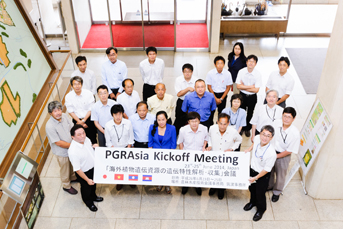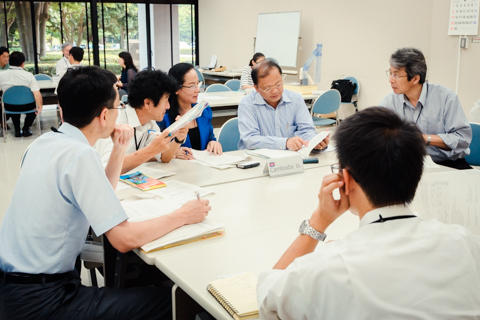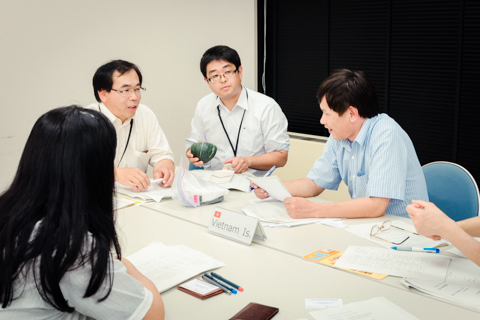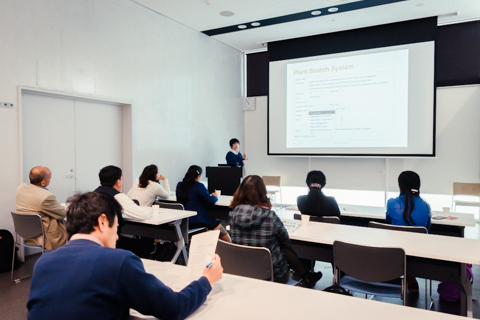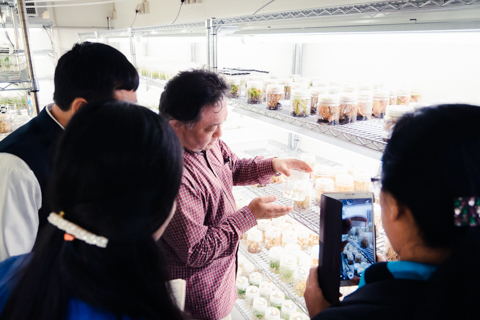PGRAsia project
Background
Considering ongoing global warming and loss of global biological diversity in recent years, it has become more important to conserve diversity of plant genetic resources (PGR), and to use them efficiently to develop cultivars that will contribute to world food security. Conservation of indigenous PGR and capacity building for genebank activities, especially in developing countries, are particularly important.
For the past 30 years, Genetic Resources Center, NARO, Japan (NARO genebank) has been keeping good relationship with genebanks in several Asian countries and supporting the genebank activities in line with policies of the Food and Agriculture Organization of the United Nations.
Since 2013, Japan has become a contracting party of the International Treaty on Plant Genetic Resources for Food and Agriculture (ITPGR), which establishes a basis of international technology transfer and allows mutual use of PGR between contracting parties.
In light of this situation, Ministry of Agriculture Forestry and Fisheries, Japan and the NARO Genebank (together with Japanese participating organizations and overseas partners) have decided to start a challenge to enhance Asian genebank networks.
Outline of the project
Period
Five years (JFY2014–JFY2018)
Participating organizations
| Leader | Genetic Resources Center, NARO, Japan | |
|---|---|---|
| Japanese Research Group | National research institutes |
|
| Universities |
|
|
| Prefectural research institutes (7 institutes) |
|
|
| Overseas Partners | Governmental research organizations |
|
Proposed project activities
All activities will comply with national and international laws and regulations on access and benefit sharing of PGR. The results obtained from the project activities will be jointly published.
-
Collaborative field surveys to conserve PGR
PGRAsia project will support funding to conduct collaborative field surveys in partner countries, for conserving PGR based on the Annual Work Plan (PIC). Newly collected materials will be conserved in the genebank of each country, and a subset will be transferred to the NARO genebank as safety back up, based on mutually agreed terms and conditions (MAT), complying with international regimes on access and benefit-sharing (ABS) of PGR.
-
Characterization and Evaluation of PGR in Japan and in the partner countries
Seven vegetable crops (cucumber, melon, squash, eggplant, chili pepper, leaf mustard, amaranth) and two grain crops (rice, sorghum) are selected as main target crops. PGR of these crops will be characterized in Japan and in the genebanks of the partner countries. Costs needed for this activity in the partner countries will be covered by the PGRAsia project funds.
-
Development of mini-core collections
Candidate accessions for mini-core collections of cucumber, melon, and squash will be selected mainly based on the DNA profiling.
-
Development of open Database
Information obtained from characterization and evaluation will be made publicly available from database for sharing information with partner countries.
-
Capacity building of invited scientists in Japan
Scientists from each of partner countries will be invited to Japan for capacity building.
-
Pre-breeding of tomato and eggplant
Pre-breeding program of tomato and eggplant will be conducted jointly by Japan and Vietnam, and by Japan and Lao PDR, respectively.
Expected outcomes of the project
Secure ex-situ conservation of PGR in genebanks of participating Asian countries will be accomplished with safety back up in NARO genebank.
Collaborative relationships and capacity of genebanks among participating Asian countries will be strengthened.
Characterization and evaluation data, conserved PGR, developed mini-core collections, and breeding materials will be made publicly available for sustainable and efficient use of PGR.
These outcomes support implementation of international agreements, such as;
-
The International Treaty of Plant Genetic Resources
- Article 5. Conservation, Exploration, Collection, Characterization, Evaluation and Documentation of PGRFA
- Article 6. Sustainable Use of PGR
- Article 7. National Commitments and International Cooperation
- Article 8. Technical Assistance
-
Aims of the “2nd Global Plan of Action for Plant Genetic Resources for Food and Agriculture”
- Promote cost efficient and effective global efforts to conserve and sustainably use PGRFA
- Link conservation with use for a greater use of plant germplasm
- Strengthen crop improvement and seed systems to foster economic development
- Create capacities, strengthen national programs and widen partnerships for PGRFA management
- Strengthen implementation of the International Treaty on Plant Genetic Resources for Food and Agriculture
